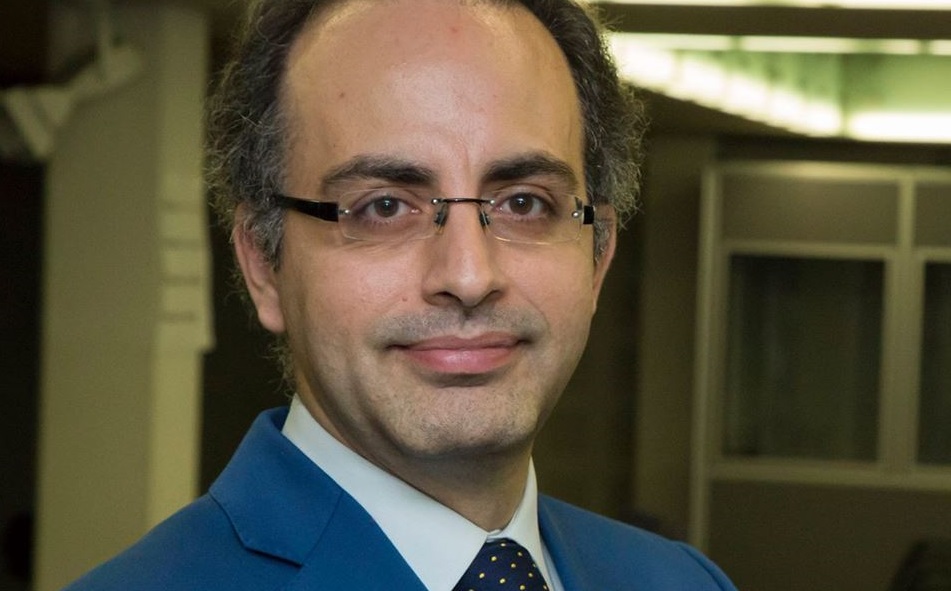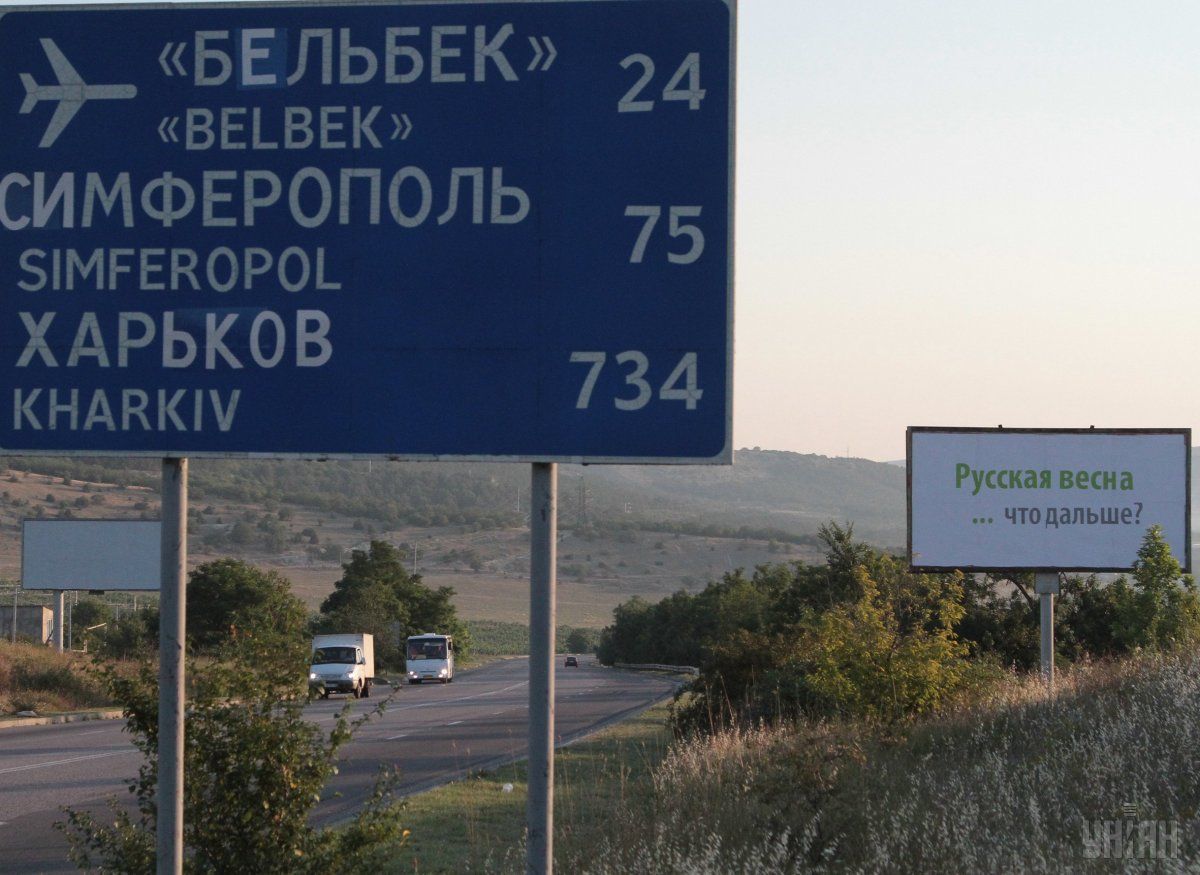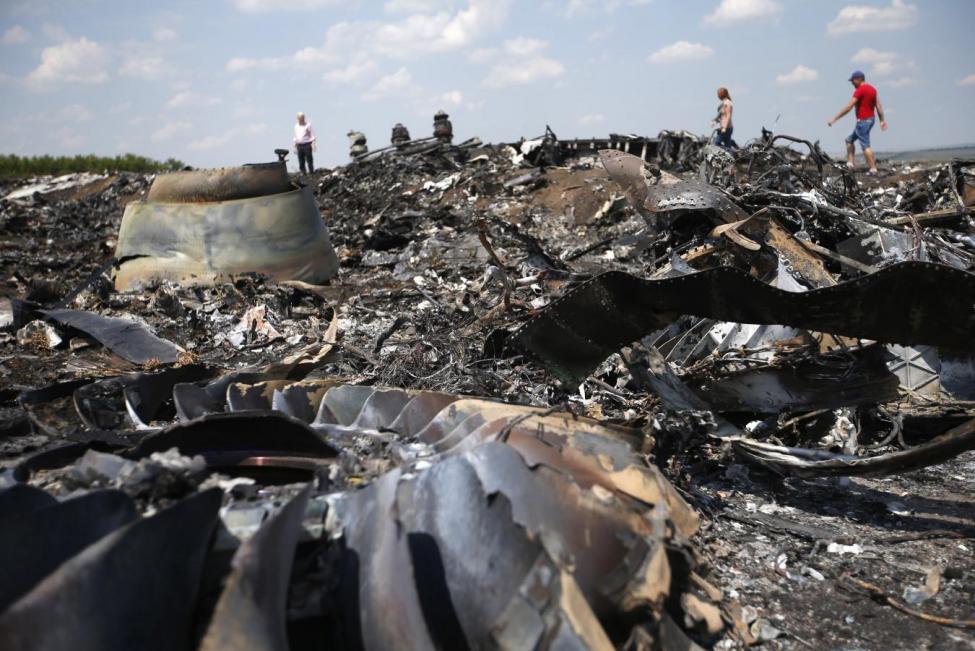
Representative of the International Criminal Court Fadi el-Abdallah: "Not every attack on the civilian population is considered a crime against humanity"
Spokesperson and head of the public affairs unit at the Hague-based International Criminal Court (ICC), Fadi el Abdallah, sat down with UNIAN to tell whether Russia’s illegal annexation of Crimea would be subject to the Court’s consideration, and whether the preliminary examination has been completed of Ukraine’s application on Maidan crimes.
On December, 4, the 16th meeting of the Assembly of States that have ratified and acceded to the Rome Statute will launch in New York. In other words, these are the countries that recognize the jurisdiction of the International Criminal Court. As of today, the two of Ukraine’s applications are at the stage of preliminary examination by the ICC’s Office of the Prosecutor – on Russian aggression and the illegal occupation of Crimea.
ICC spokesman Fadi el Abdallah has told UNIAN about the latest developments on Ukraine issues.
When we spoke last time, you said there was a possibility the amendments to the Rome Statute could be voted to allow the ICC to consider complaints regarding occupation. When could such voting take place?
There is a big discussion on whether it will happen this year or not. Some states are saying that there needs to be an agreement on some aspects before a vote, some say no, we have to vote first. So, it is part of the discussion which will happen this year in the Assembly but at this moment I wouldn’t be sure if the vote takes place or not. It is something for states to decide during this discussion. It is about a crime of aggression. This is amendment regarding the activation of not of the crime of aggression articles.
…and on the annexation…
A crime of aggression is using the apparatus of state to attack a sovereignty of another state. And that includes a lot of different elements.
Including annexation?...
Yes, that is part of the attack on the sovereignty of another state.
Is there a possibility that this amendment will also apply to the crime which had been committed in the past?
As a general rule, the criminal responsibility articles are not applied retroactively.
So, there is no way that the annexation of Crimea will be considered by the ICC, is it?

“I would not be able to speculate on that for a simple reason, which is: first, we need to see if it goes ahead or not (the activation of the crime of aggression) and then, if it is activated, whether there is a possibility to qualify certain things as continuous crimes or as crimes that are still happening … And that’s a legal discussion that might be challenged because if you have a continuous crime. That means it is still happening now, after the Treaty entered into force and then continuous crimes can be part of the Court’s jurisdiction if they have started before. But whether it will be applicable to this specific article and to this specific situation, that’s something that we cannot speculate on. That’s why I can’t say yes or no.
In parallel lines to what you have in the Office of the Prosecutor, there are almost similar cases in the UN International Court of Justice - about aggression in the east and about Crimes against Crimean Tatars. Is the ICC following up on the developments there and is a verdict on them also going to be part of your case?
We are aware of it, of course, but it is not a part of our case. We apply different rules and different objectives. For the ICC it is always about individual criminal responsibility, while the ICJ will be looking into a conflict between the two states. So, what they are looking into is a potential responsibility of a state for something. While we are looking into who gave the order to commit specific crimes and these crimes that we are looking into are war crimes, crimes against humanity, and genocide according to the definition at the Rome Statute. That is not what they are looking into - they are looking into a conflict between the two states. So it is not comparable.
There is another investigation, I'm talking about MH17 where we have individuals, who gave an order, who pushed the button. Will this investigation be included in the Ukrainian case?
For the moment we don't have an investigation of the Ukrainian situation. We have a preliminary examination, which means that ICC Prosecutor is gathering all available information on all aspects related to the conflict. Whether this will be part of it or not is something which ICC Prosecutor Office will have to decide and look into, to check to which extent it was connected to the Ukrainian conflict, is it part of this situation, is this something completely different, and so on, and to which extent it can be under the ICC jurisdiction. Because we have very specific definitions. So, not every murder for example is a war crime. It has to be under specific conditions.

Not every attack on the civilian population is considered as a crime against humanity. It has to be in the context of a widespread or systematic attack against the civilian population and in addition to that we have the conditions of gravity and whether the national jurisdictions are investigating that or not. There is a different layers of questions, that constitute what is a preliminary examination and that is why the Prosecutor might take a bit of time to go through all of that about all alleged crimes on which there is available information before reaching the decision. So whether this specific incident will be part of it we cannot know now because it is part of the evaluation that the Prosecutor is doing to check which incident would qualify as a war crime, crime against humanity, or genocide, according to the ICC Rome Statute, whether it is connected to this conflict, whether the national tribunals in any of these countries that can exercise their jurisdiction are actually doing serious genuine investigations or not. As I said, the Prosecutor goes through all these elements before reaching the level of saying: yes, this is part of crimes that are within the ICC jurisdiction, yes, there is a need to open an investigation, or not.
Where are we now with these two Ukrainian declarations?
The declarations have been submitted by Ukraine - the first one as you remember it was more related to the Maidan incidents and another one is an open-ended declaration. So, it continues and the ICC Prosecutor has the policy that whenever there is such a declaration, even though the country is not a state party, but when there is such a declaration a Prosecutor Office opens preliminary examination. This has been done. That means that we are now in the phase of the preliminary examination.
The preliminary examination itself is divided into different stages which are: first, the conditions of the jurisdiction, the type of the crime, where did the crime happened, at which date, and so on. The second phase of the preliminary examination is the admissibility meaning are there genuine prosecutions at the national level or not and are these crimes of sufficient gravity or not, and the third phase is checking the interest of justice and the interest of the victims, whether this will be served if we will open the investigation or whether this investigation will be counterproductive.
Specifically regarding Ukraine, the information that I have is the Prosecutor’s report of 2016. But for that, it is better to see what will be in the report of 2017. And then you can see in which of this phases the Prosecutor is, and when you see that, for example, they finished the phase of checking the jurisdiction, they will move to admissibility, then you know that they are closer to the decision. If you see that they have finished admissibility part and they moved to the interest of justice and victims it means that they are even closer. And if when they finished this one, like they announced about Afghanistan last year that they finished all three phases, that means that they are waiting only for the final decision of Prosecutor to go ahead or not. Now for Ukraine as for Afghanistan, in case the Prosecutor after finishing all these phases decides there is a need to open an investigation she would have to go eventually to the judges for authorization.
There were some reports that the first declaration about the Maidan has already been closed and the Prosecutor decided not to proceed with this…
That has been no decision of the Prosecutor yet. My understanding is that there is one preliminary examination of the whole situation in Ukraine. There are two declarations but the Prosecutor’s Office opened one preliminary examination about everything. And it is still open, it has not been closed. They did not close anything. What they are looking into is something that will be indicated in the preliminary examination report. Because you can say, we have jurisdiction over the situation from this date to today. But then they will say, during this long period there are some specific incidents that we are looking into. And then they normally would indicate that in the preliminary examination report. It is not like something happens each month. Maybe they are focusing only on three or four at this moment. In the report of 2015, the Office provided its preliminary analysis of the crimes allegedly committed during the Maidan events. The Office found that while the violence allegedly committed by Ukrainian authorities between November 30, 2013, and February 20, 2014, could constitute an attack against a civilian population, the information available did not provide a reasonable basis to believe that the attack was systematic or widespread. But the Office, however, expressed its willingness to reassess its preliminary analysis in the light of any new information. In October 2016, the Office received further information that will be subject to close examination. The assessment may come as early as in the next report.
Iryna Somer

